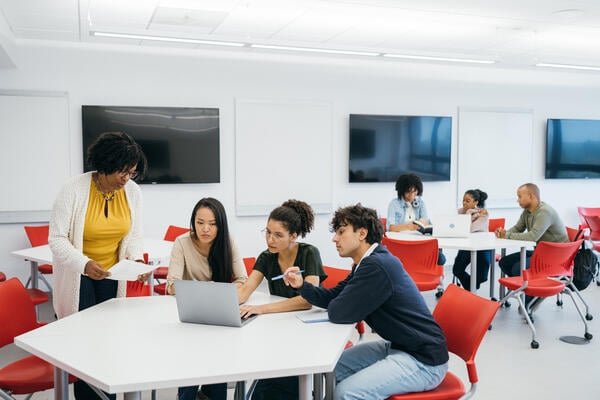Participation in campus activities is considered a high-impact practice, which boosts a student’s retention, feelings of belonging and long-term career success. But various institutional and legal obstacles can create equity gaps in experiential learning for noncitizen students.
International and undocumented students face restrictions on work opportunities while enrolled because of their legal standing in the U.S. Students covered by Deferred Action for Childhood Arrivals or Temporary Protected Status have greater opportunities to engage, but securing work can still be a challenge.
In addition, financial obligations can limit students’ ability to participate in campus activities, particularly for low-income students who need to work for pay.
According to a 2024 survey by Inside Higher Ed, 20 percent of respondents said they would be more inclined to get involved in campus activities if the institution offered more opportunities for paid work on campus, or if they didn’t have to work off campus.
Even for students who don’t pay tuition, financial aid restrictions can limit how a college or university compensates them. If students receive more aid than the cost of attendance, they may have to refund the institution or pay taxes on the funds. That’s why campuses and partners have to think creatively about how to ensure students are compensated for their efforts without disqualifying them from financial aid or saddling them with additional expenses.
Some college and private partners have established measures that compensate students for their learning and service, allowing them to take advantage of meaningful experiences.
Put into practice: Colleges can offer undocumented students non-employment-based educational opportunities (NEBOs) to develop personal, academic and professional skills— including research, career preparation or campus engagement—that also provide students with financial aid.
For instance, fellowships are project-based experiences with deliverable outcomes that are not jobs and do not require work authorization.
In fall 2023, Arrupe College of Loyola University, Chicago launched Arrupe LEAD, which offers enrolled students—about one of six of whom are undocumented—the opportunity to engage in job shadows and career-development workshops. Participants receive a scholarship award for completing the program.
The University of California, Irvine, offers a fellowship project out of the DREAM Center, a center focused on assisting those who have been impacted by immigration systems or status. The DREAM Fellowship gives students the chance to work on a yearlong project supported by faculty and staff to develop their interests and professional skills.
DIY: Immigrants Rising, a national nonprofit organization, created a step-by-step guide for educational institutions interested in creating educational experiences for noncitizen learners to ensure they’re able to participate and receive financial incentives.
The guide suggests that institutions:
- Draft the fellowship description, including primary purpose and scope of the learning experience.
- Rally stakeholders, including faculty, human resources representatives, student affairs staff, financial aid officials and student leaders, to solicit feedback.
- Create an application and fellowship agreement, outlining stipend amount, eligibility requirements and benefits for the fellow. It’s important to clarify that fellowships are not employment at this stage.
If your student success program has a unique feature or twist, we’d like to know about it. Click here to submit.


